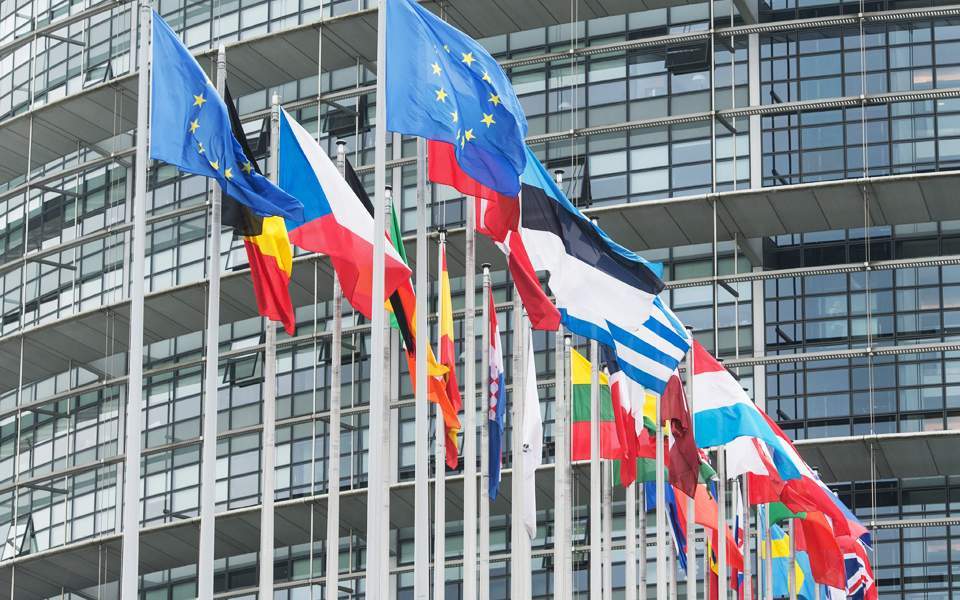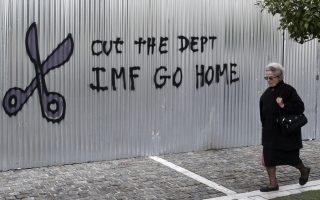Unified European crisis management needed

The disastrous impact of the Covid-19 pandemic is pushing Europe towards an existential crossroads. In defining the measures to respond to the crisis, two opposite blocks are forming: the front of the southern countries (“South”) with larger public debts and weaker economic growth and the one of the northern countries (“North”) with accounts in order and significantly lower debt-to-GDP ratios. The former advocates for a more radical European Union intervention and is asking for the collectivization of the economic costs of the crisis, while the latter is firm on the principle that debts are a sovereign matter.
In both regards, there are five tales worth telling:
1) A tale of fair competition. Italy, France and Spain, three of the four largest EU countries by population, are the champions of the South. If 90 percent can be an indicative threshold representing when public debt becomes a burden for the economy, the South’s pre-crisis levels were already beyond this. Furthermore, projecting a cost of the measures imposed by the pandemic equal to 10 percent of GDP, the extra debt will ruinously exacerbate the Southern balance sheets, bringing material solvency risk for some of them. The North however starts from a much safer place (debt-to-GDP ratios for Germany and the Netherlands are 63 percent and 59 percent respectively), with a larger buffer to absorb additional debt. In practice, this means that the North will become more competitive in the European market after the crisis. Assuming crucially that the rest stays the same.
2) A tale of debtors and creditors. Six trillion euros (the sum of the public debts of Italy, France and Spain) have nowhere to hide. In the aftermath of the crisis, the mere increase in debt and the simultaneous contraction in GDP will bring the South to their knees, irrespective of how drastically the European Central Bank may intervene. In practice, this is a ticking time bomb, bound to explode at the deep of the recession that will follow the Covid-19 pandemic. Europe has fresh memories of toxic combinations of high debt levels and heavy GDP contraction, for instance the agonizing case of Greece that now seems minuscule in comparative terms. Southern sovereign debt is widespread in the financial system. Any depreciation of it will dramatically affect the balance sheets and capital positions of banks worldwide, hampering further their residual ability to provide liquidity to the real economy.
3) A tale of financial armory. The traditional ECB tools have been already exploited to an extent. The interest rates cuts have probably reached their lower boundary, with safe assets yielding negative rates and pension funds and savers heavily penalized. It is questionable if massive asset purchases programs, announced by central banks including the ECB, will produce the desired outcome in the long term. Bond prices are already high (interest rates low) with 10 trillion euros of debt currently yielding negative rates. Pushing prices even higher comes at a cost: the bond-sellers will likely cash in and stay in cash rather than buy much riskier assets in a bear market. Complementary strategies, such as yield curve control, come with similar caveats. In practice, the deflationary pressure in the real economy will have a much higher impact on real rates (and consequently on borrowing costs) than any small reduction of nominal rates, decreasing the appetite for risk even further.
4) A tale of buyers and sellers. What good is competitiveness if the Common Market disappears? Germany is the second-largest country in the world by net exports with the EU as its main commercial partner, buying around two thirds of its exported goods and services. The skewed trade balance between Germany and the rest of the block, worth 3.7 percent of GDP, is an anomaly at the heart of the European project (loudly disputed by South sovereignists). It is also a double-edged sword since it dangerously exposes the German economy against any financial or political scenario, in which the purchasing power of the South’s citizens is depleted and these countries turn away from the Common Market. With the increasing likelihood of such scenarios, the harshness shown by the North, in refusing the case for “collectivized crisis management,” clashes with the basic principle to preserve valuable “customer relations” through a crisis.
5) A tale of war. Politicians are emphasizing how the national engagements and economic measures to fight the Covid-19 outbreak resemble wartime efforts. Considering this analogy, the involved parties should be mindful that actions (or inactions) at this moment of crisis will acquire disproportionate symbolic value for the years to come, fueling either pro- or anti-European narratives. As happened during the large-scale conflicts of the past, powers with hegemonic aspirations will pursue opportunities to expand their areas of political and economic influence. Any gradualistic or minimalistic view of the EU political mandate seems suddenly at odds with the wartime need of a large state. The South, asking for more interventions, counts for 62 percent of the EU population (56 percent of EU GDP). Ignoring this may be tantamount to preparing the ground for a split.
These five tales tell us about weaker and stronger economies with legitimate national interests but with an overarching common priority. This can be served only by following the principle that no one is saved by himself. The European crisis management strategy should acknowledge the errors of the past. On the one hand are the perpetual failures of the South in keeping their accounts in order, and the regretful spending of many Southern political leaders. On the other hand, the continuous state of crisis which has characterized Europe for much of the last 13 years which indicates that the minimalistic view of the EU is failing. We cannot fight this war with blunt weapons, especially up against a crisis so unprecedented in its size and nature.
The emergency should be fronted with a collective effort and with a new tool, a dedicated European Covid-19 Commission (ECC) empowered with a “whatever it takes” mandate to act as an economic council of war. The primary focus of the ECC should be on preserving the capacity of the Common Market by boosting demand. This can be achieved by making sure that European citizens receive direct economic support both during and in the aftermath of the present crisis. The ECC should back financially the sovereign states in implementing a number of related policies such as: i) direct cash transfer to families during the time required to go back to normal, and ii) expanding the national support systems for unemployed and low-earning people (a first important step in this direction is the initiative SURE, recently announced by the European Commission).
On a different front, the ECC should be engaged with sovereign states in providing an extensive credit shield to the private sector, so as to ensure that small and large business have constant and adequate access to liquidity (as argued by Mario Draghi in the Financial Times on March 25). This is the time to be daring, and jobs can be created and business supported by means of financing large European infrastructure projects, starting with sectors such as air, rail and marine transport that are coming out in shreds from this crisis; or, for example, by helping sovereign states in upgrading their healthcare systems to the new standards set by the pandemic. The ECC should be financed by European debt, which the ECB should have the mandate to buy, i.e. in practice tantamount to printing money. This strategy has a number of obvious risks, inflation and misspending to mention two, but no credible alternatives so far. To tame these risks, the ECC should issue strict and actionable guidance on the scope of projects and policies under its umbrella. Most importantly, the ECC financing should come with a watertight audit process, so as to credibly track every rivulet of the money flow. For such a program to succeed, the principle that no one is saved by himself should be embraced with the greatest sense of responsibility at every level. Primarily by sovereign European governments that cannot afford to place any other partisan interest before the prosperity of the Common Market.
Fabrizio Anfuso teaches at the University of Zurich’s Department of Banking and Finance and Dimitrios Karyampas is a visiting lecturer at Bocconi University’s Department of Finance.





